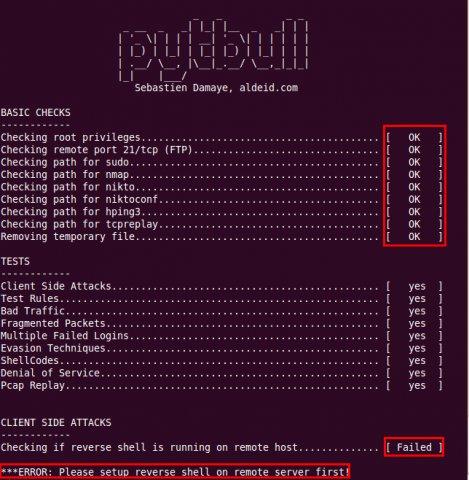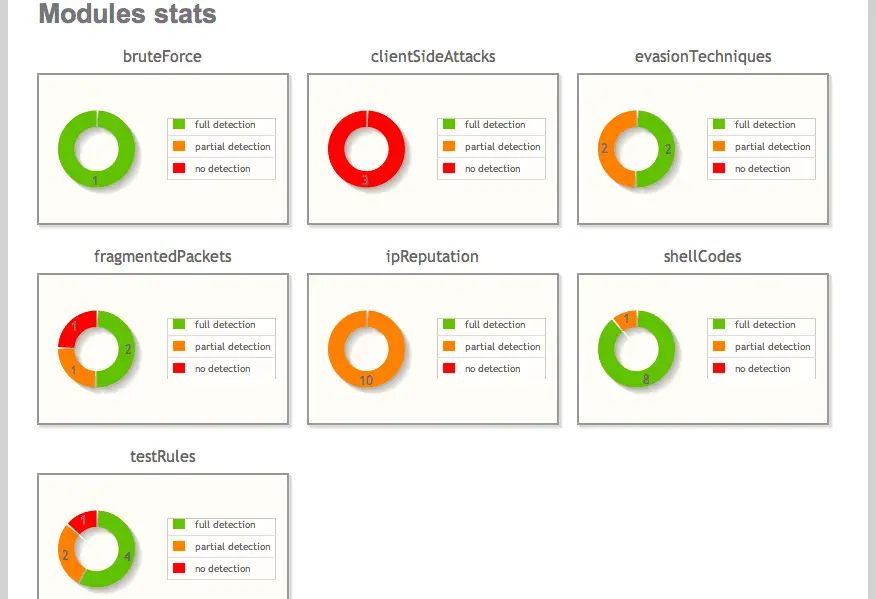Pytbull: IDS/IPS testing framework

Pytbull is a python based flexible IDS/IPS testing framework shipped with more than 300 tests, grouped in 9 modules, covering a large scope of attacks (clientSideAttacks, testRules, badTraffic, fragmentedPackets, multipleFailedLogins, evasionTechniques, shellCodes, denialOfService, pcapReplay).


Pytbull is shipped with about 300 tests grouped in 11 testing modules:
- badTraffic: Non RFC compliant packets are sent to the server to test how packets are processed.
- bruteForce: tests the ability of the server to track brute force attacks (e.g. FTP). Makes use of custom rules on Snort and Suricata.
- clientSideAttacks: this module uses a reverse shell to provide the server with instructions to download remote malicious files. This module tests the ability of the IDS/IPS to protect against client-side attacks.
- denialOfService: tests the ability of the IDS/IPS to protect against DoS attempts
- evasionTechniques: various evasion techniques are used to check if the IDS/IPS can detect them.
- fragmentedPackets: various fragmented payloads are sent to server to test its ability to recompose them and detect the attacks.
- ipReputation: tests the ability of the server to detect traffic from/to low reputation servers.
- normalUsage: Payloads that correspond to a normal usage.
- pcapReplay: enables to replay pcap files
- shellCodes: send various shellcodes to the server on port 21/tcp to test the ability of the server to detect/reject shellcodes.
- testRules: basic rules testing. These attacks are supposed to be detected by the rules sets shipped with the IDS/IPS.
Adaptability
Pytbull easily adapts to your environment, whatever your IDS/IPS (Snort, Suricata, …) and your architecture (standalone mode, gateway mode).
There are basically 2 types of architectures:
- Standalone mode: This is the default mode. It enables to test an IDS that is connected to the switch just as a standard computer on the network (only one network interface used).
- Gateway mode: This mode is commonly used for IPS and has to be used in case two network interfaces are used on the IDS.
Depending on the mode you choose, tests are processed differently (e.g. use of a reverse shell in standalone mode to simulate a client that downloads malicious files)
Flexibility
pytbull tests are based on a very comprehensive syntax that enables one to write his/her own tests.
Download && Tutorial
Copyright (C) Sébastien Damaye





